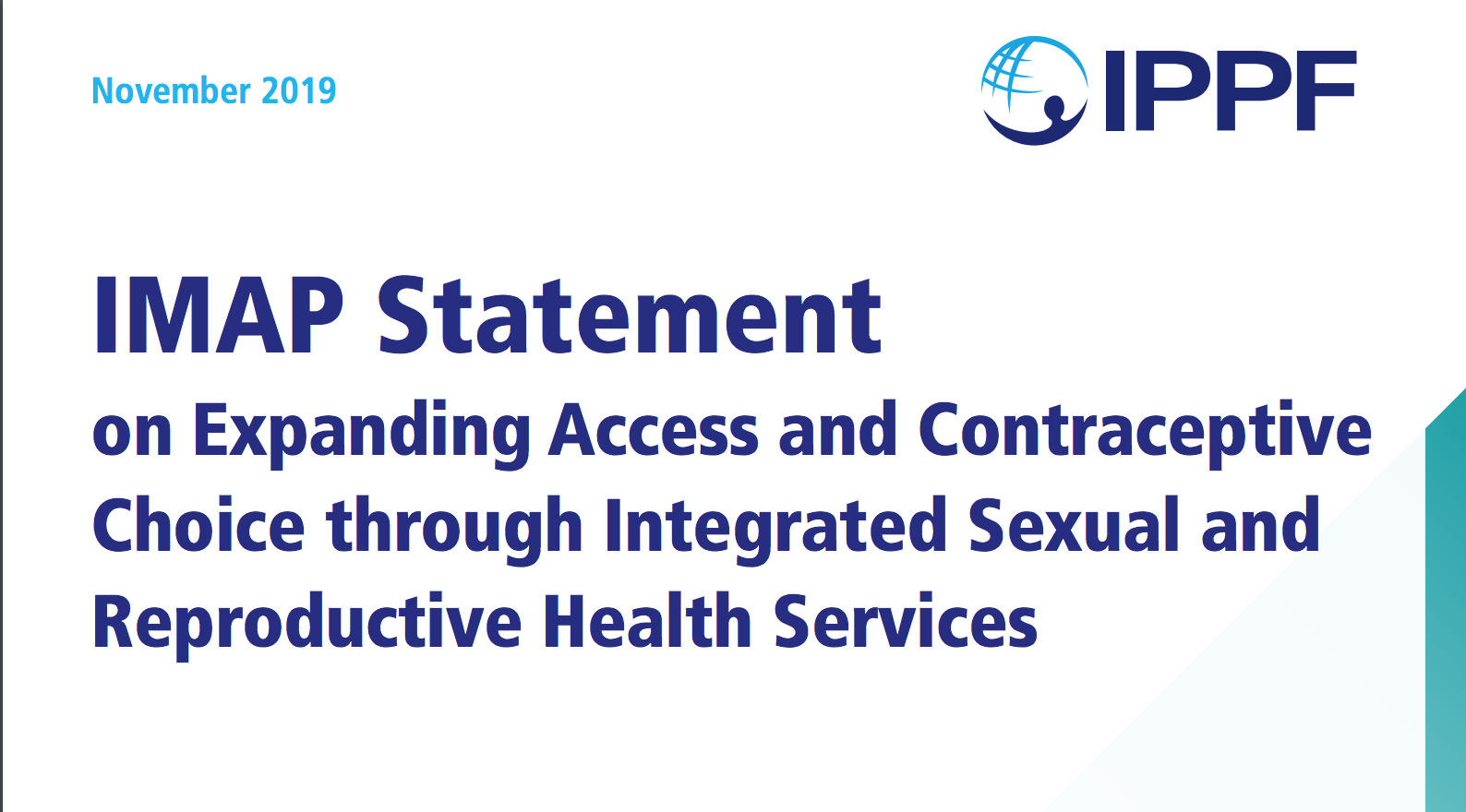Spotlight
A selection of resources from across the Federation

HIV Theory of Change
Our HIV Theory of Change is to clarify the goals and vision of IPPF’s HIV programme and to articulate the different pathways and strategies IPPF uses to contribute towards its HIV goals and vision.
Filter our resources by:

| 06 September 2021
IMAP Statement - Reproductive Health in a Time of COVID-19
This statement is intended to support and guide IPPF Member Associations and other sexual and reproductive health and rights (SRHR), humanitarian and development organisations regarding COVID-19 and vaccination and the impact on delivery of sexual and reproductive healthcare (SRH). It covers issues related to advocacy to address health inequalities and stigma, in addition to medical and service delivery recommendations, evidence and practical guidance from the scientific community.

| 01 October 2020
IMAP Statement on UHC & SRHR
Achieving UHC represents an ambitious global effort which currently receives significant traction and political momentum. Although each country is at a different stage of implementation, as they take steps on the path towards UHC, new opportunities arise to advance and integrate a comprehensive approach to SRHR and essential SRH services. UHC reforms are inherently complex, but a people‑centred and a health systems approach can help to identify key areas and actions that can be taken to advance SRHR integration in UHC. This IMAP statement highlights some of these areas and actions and, as a deeper understanding of local circumstances and the specific needs of those currently left behind are crucial, IPPF MAs are well placed to play a leading role in this process.

| 19 August 2020
IMAP statement on Sexual and Gender-based violence
It is estimated that 1 in 3 (35%) women worldwide have experienced physical and/or sexual violence from an intimate partner and/or sexual violence by a non‑partner in their lifetime, with the majority of this violence being intimate partner violence. Of the 87,000 women who were killed intentionally in 2017 globally, an estimated 58% were killed by an intimate partner or family member.Sexual and gender‑based violence (SGBV) is a human rights violation, associated with death, injury and a broad range of negative sexual, mental and physical health issues and socio‑economic impacts.

| 02 April 2020
IMAP statement on COVID-19 and Sexual and Reproductive Health and Rights
This statement’s purpose is to provide guidance to IPPF Member Associations and other sexual and reproductive health and rights (SRHR)organizations to support sustained provision of essential and life‑saving SRH services in the context of the COVID‑19 pandemic. The statement also serves as a tool to advocate with donors and other stakeholders for additional resources to sustain SRH services throughout the pandemic. The statement reinforces IPPF’s position and commitment to SRH and rights and gender equality.

| 06 December 2019
IMAP statement on expanding access and contraceptive choice through integrated sexual and reproductive health services
In 2018, IPPF endorsed the WHO/UNFPA Call to Action to Attain Universal Health Coverage Through Linked Sexual and Reproductive Health and Rights and HIV Interventions.13 This IMAP statement serves as a reminder of this call to action to ensure all people have access to comprehensive SRH services, including integrated contraceptive and HIV/STI services, provided through primary healthcare.
| 09 July 2019
IMAP statement on the ECHO trial
The body of evidence on possible increased risk of HIV acquisition with use of progestogen‑only contraception has remained mixed since 1991, with the greatest concern of an increased risk of HIV acquisition centred on the use of intramuscular depot‑medroxyprogesterone acetate (DMPA‑IM). Data on the risk of HIV acquisition and use of other highly effective contraceptives such as norethisterone enanthate (NET‑EN), hormonal implants, and hormonal and non‑hormonal IUDs are limited.2 And there are no data on subcutaneous DMPA (DMPA‑SC) and HIV risk. In 2016, an updated systematic review of epidemiological evidence on hormonal contraception and HIV acquisition concluded that there was a significant association between the use of DMPA and HIV acquisition and no increased HIV risk with oral contraceptive pills.3 The updated systematic review provided important data regarding DMPA users at high risk of HIV; however, confounding in these observational data could not be excluded. The historically mixed data and the need to control for confounding required further investigation into the association between use of progestogen‑only injectables and increased risk of HIV acquisition, using a more robust research design. This led to the development of the Evidence for Contraceptive Options and HIV Outcomes (ECHO) trial.















